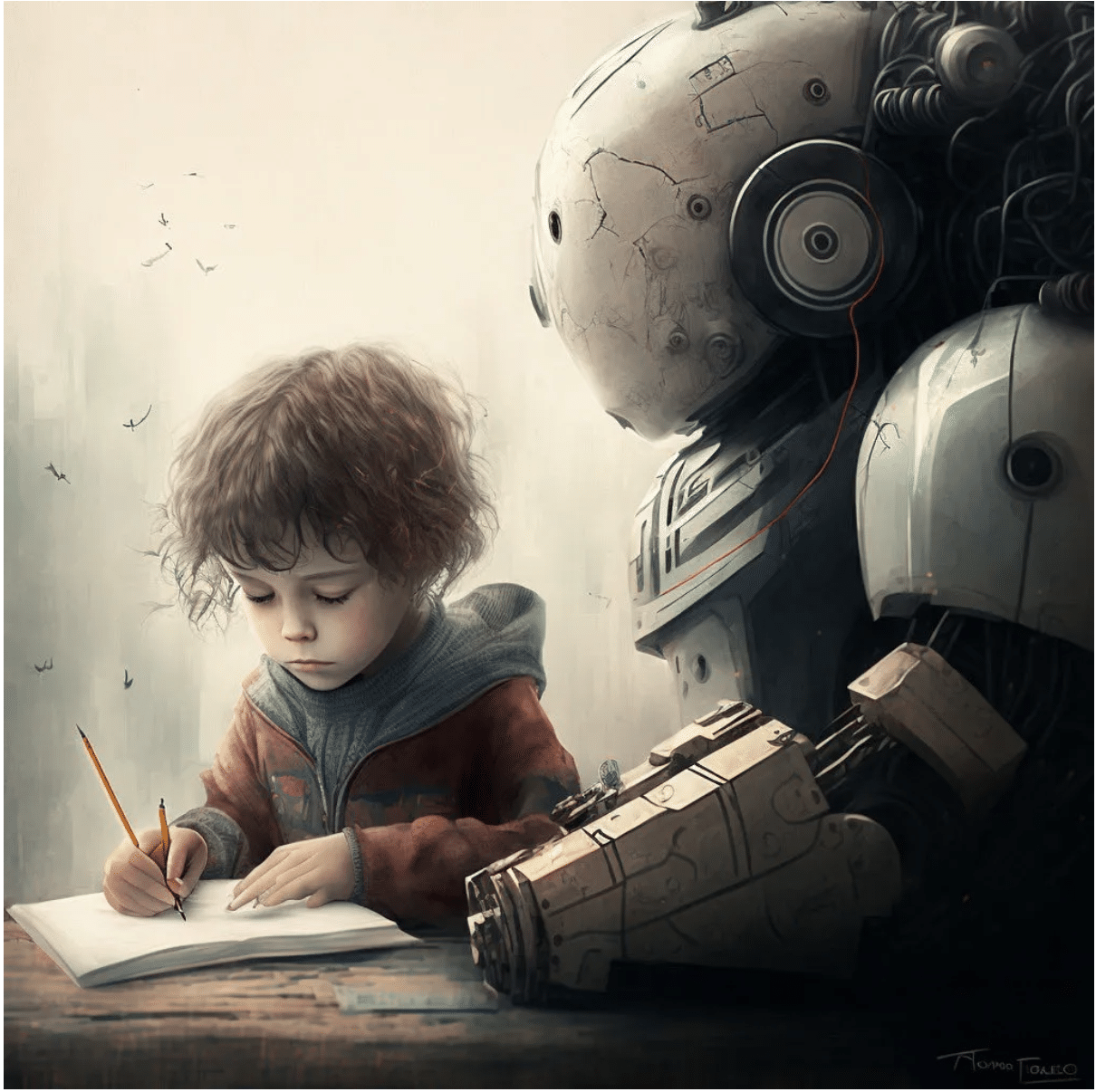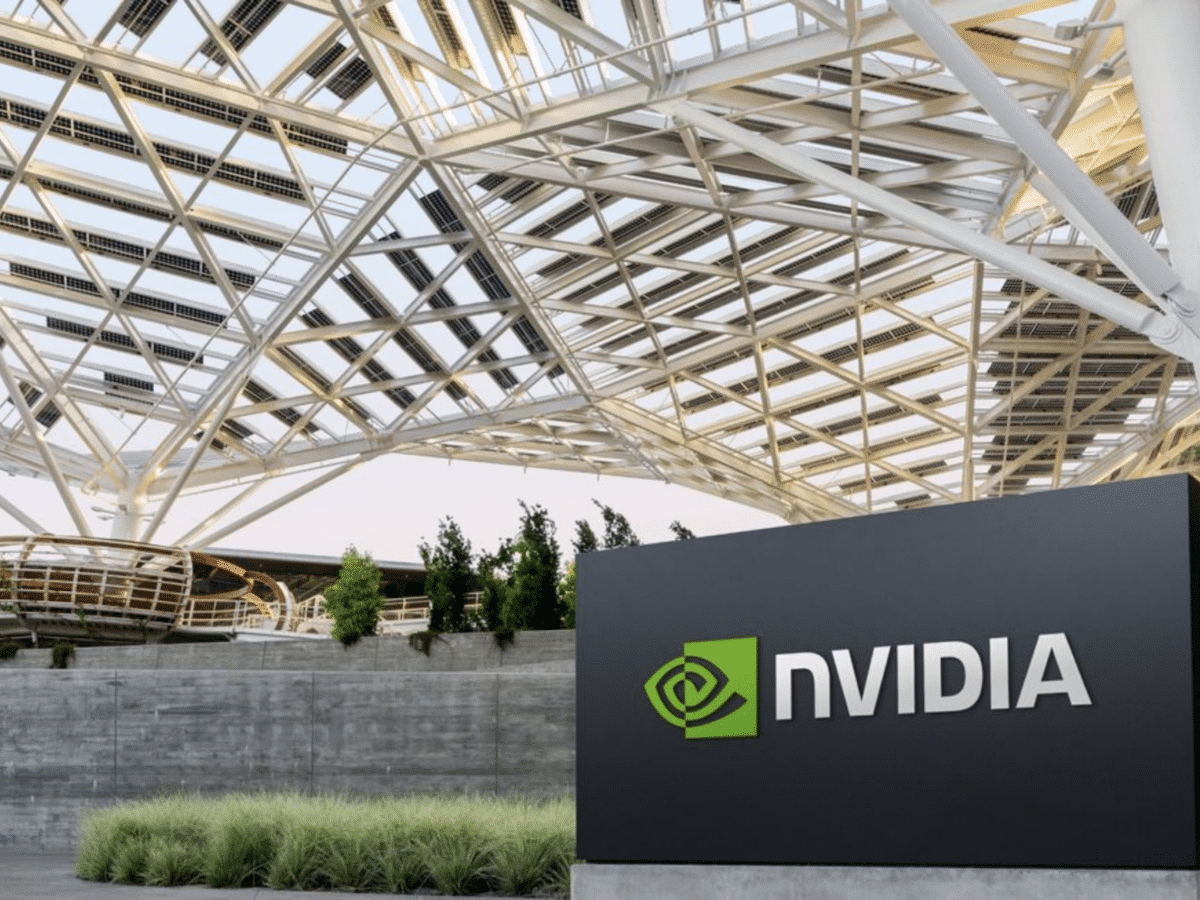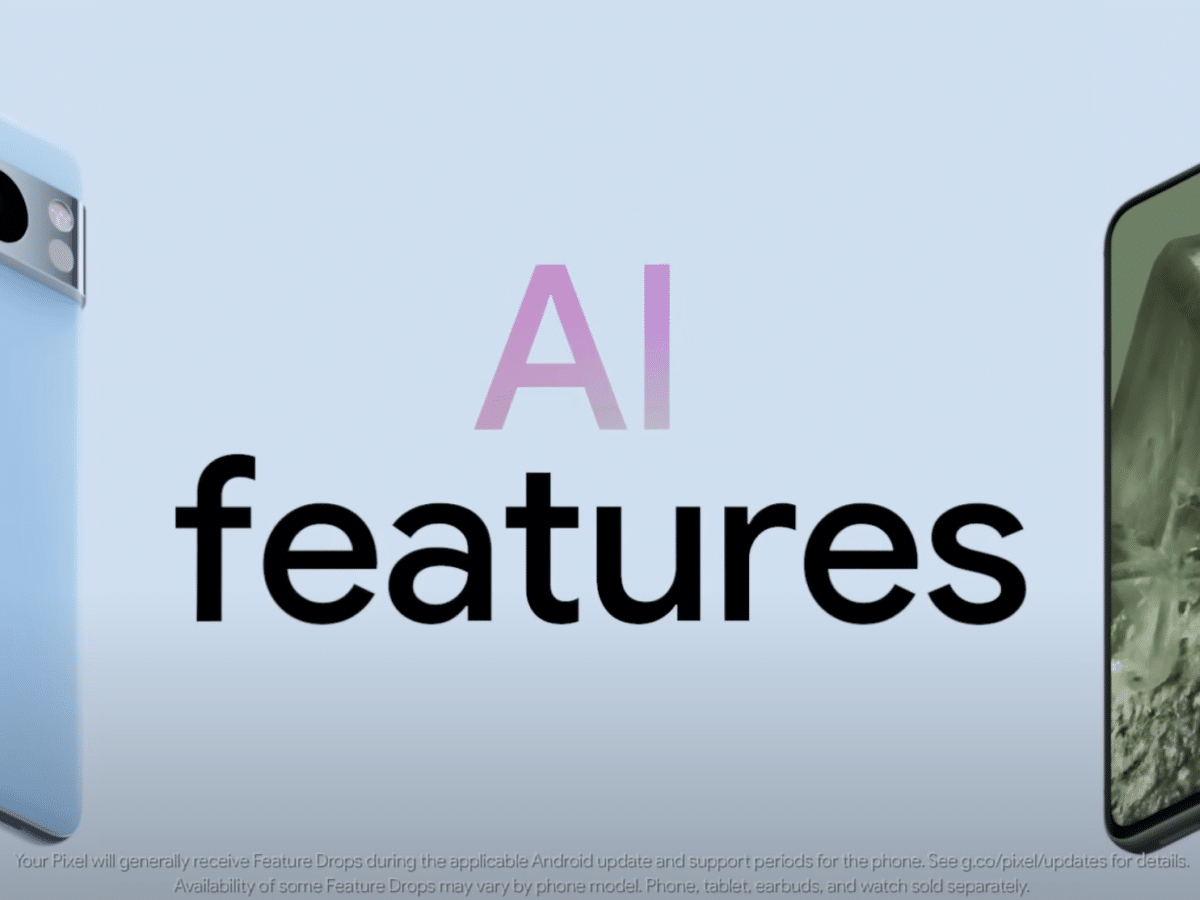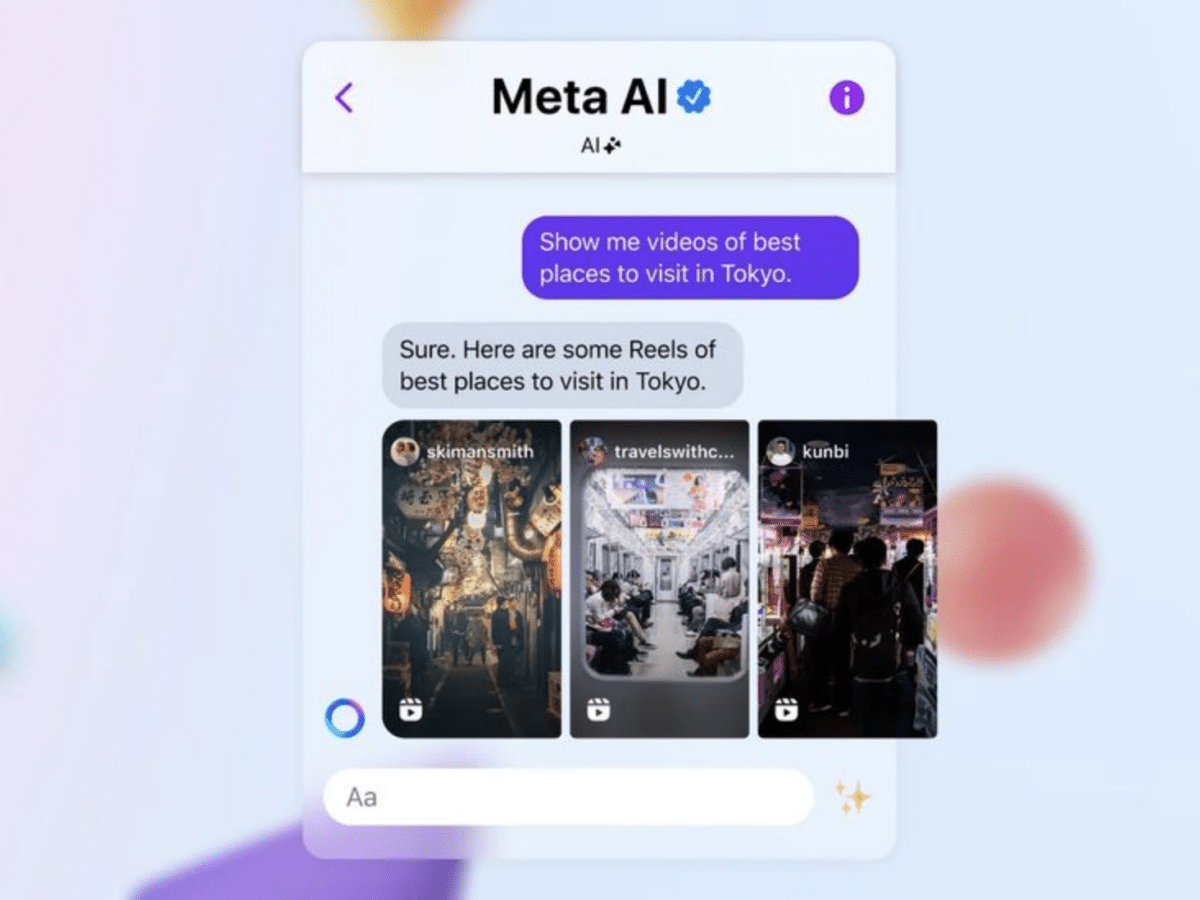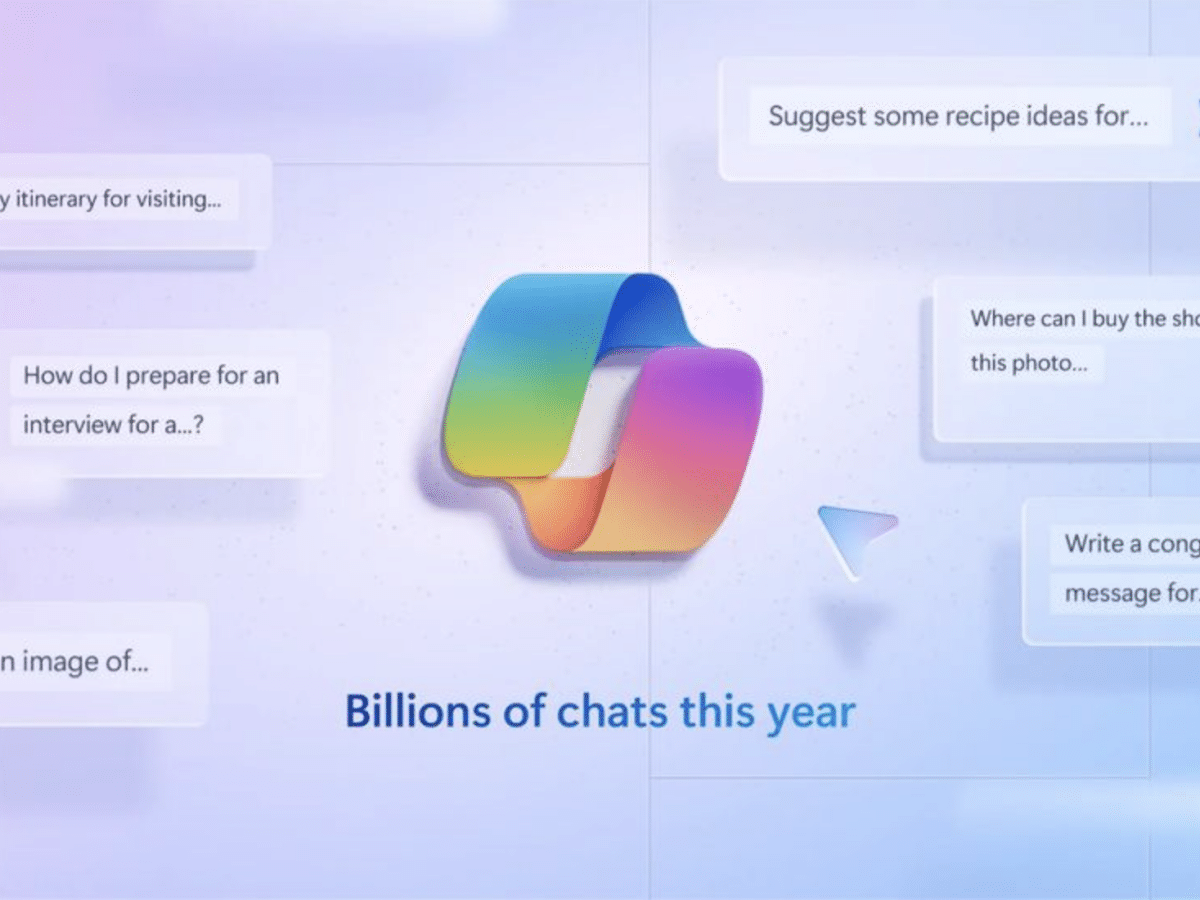Movies like “The Terminator” and “The Matrix” have long shown the potential of artificial intelligence (AI). Today, we’re experiencing the reality of AI in our everyday lives. Many industries have embraced AI in various forms, such as virtual reality, simulations, and augmented reality.
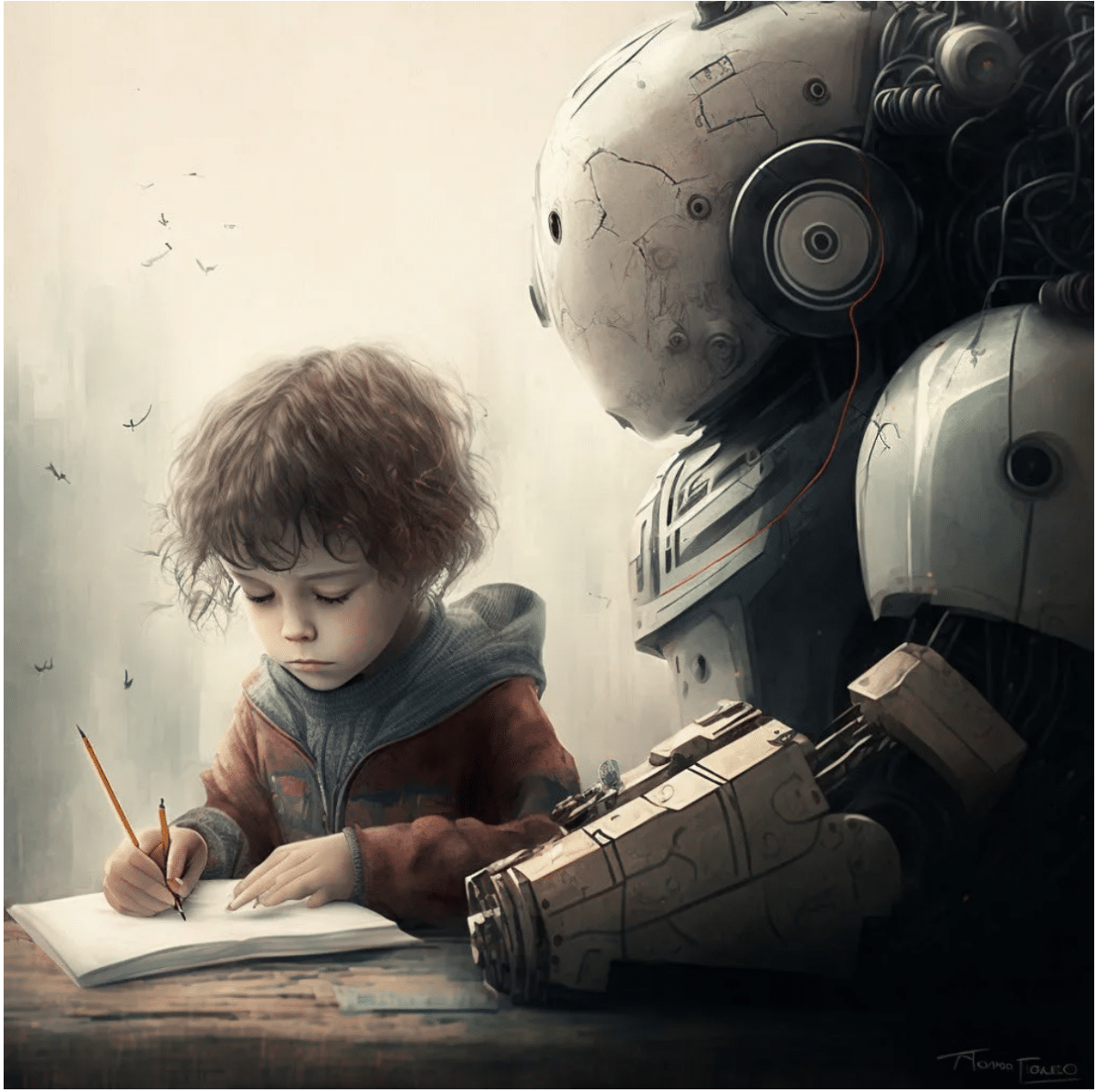
In 2022, OpenAI introduced ChatGPT, a free chatbot that can conversationally answer questions. The advanced version, ChatGPT Plus, is built on the GPT-3.5 language model. The AI community was amazed when OpenAI unveiled GPT-4, an even more powerful model that can handle text and images, available for ChatGPT Plus users.
From GPT-3.0 to GPT-4.0
OpenAI, founded in 2015 by a group of visionaries, aims to create and promote friendly AI. The founders donated $1 billion to fuel the company’s growth and committed to sharing their research and patents. They released their first product, GYM, in 2016, followed by a series of AI tools and language models.
By 2020, OpenAI launched GPT-3, a powerful language model with 175 billion parameters. This model led to the creation of user interfaces like DALL-E, DALL-E 2, and ChatGPT, which helped double OpenAI’s market valuation from 2021 to 2023. In January 2023, Microsoft announced a multi-billion dollar investment in OpenAI.
On March 14th, 2023, GPT-4 was released as an API and a ChatGPT feature, currently available to ChatGPT Plus users. Many are now on a waitlist to access the GPT-4 API, eager to explore its possibilities.
GPT-4 Use Cases
In the release announcement, OpenAI stated that GPT-4 is a powerful multimodal model that, although not as capable as humans in some situations, displays human-level performance on numerous professional and academic benchmarks. To demonstrate the difference between GPT-4 and its predecessor, OpenAI tested it on exams originally meant for humans. The results revealed notable improvements compared to GPT-3.5’s performance on the same tests.
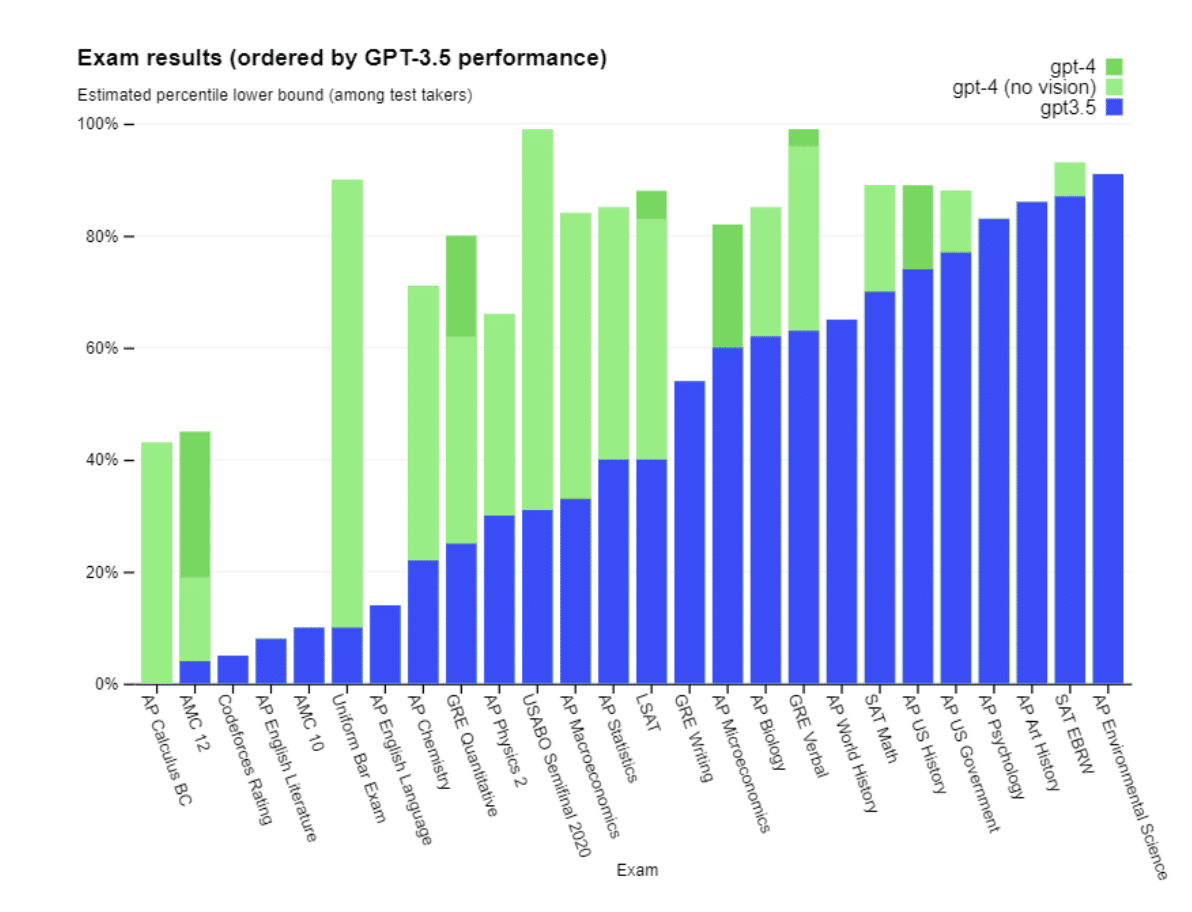
OpenAI also tested GPT-4 using traditional benchmarks designed for machine learning models like MMLU, HellaSwag, AI2 Reasoning Challenge (ARC), WinoGrande, HumanEval, and DROP. When the results of these tests were compared with other existing language models such as GPT-3.5, LM SOTA, and SOTA, GPT-4 outperformed each of them on all the tests.
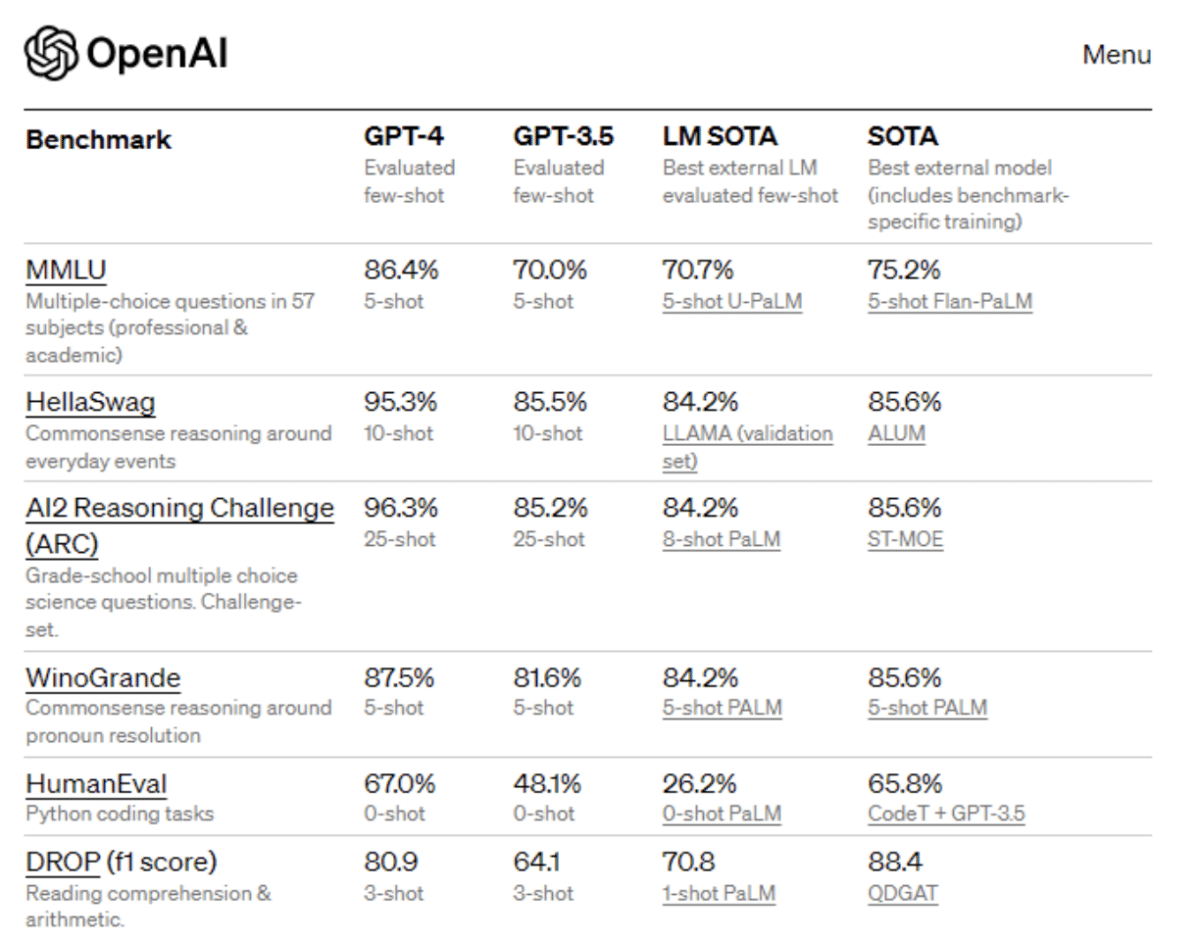
As soon as OpenAI announced the release of GPT-4 for ChatGPT Plus subscribers, exploration began en masse. Different professionals swung into action, testing GPT-4’s ability to solve complex problems (which were limitations of GPT-3) and confirming the accuracy of these outputs. The results have been staggering, and some of them are explained below.
Website Creation
Software developer and creator of Chatbot UI, Mckay Wrigley, inscribed some prompts on a sheet of paper, took a picture and gave it to ChatGPT. The chatbot used the prompt to create and design a website within seconds.
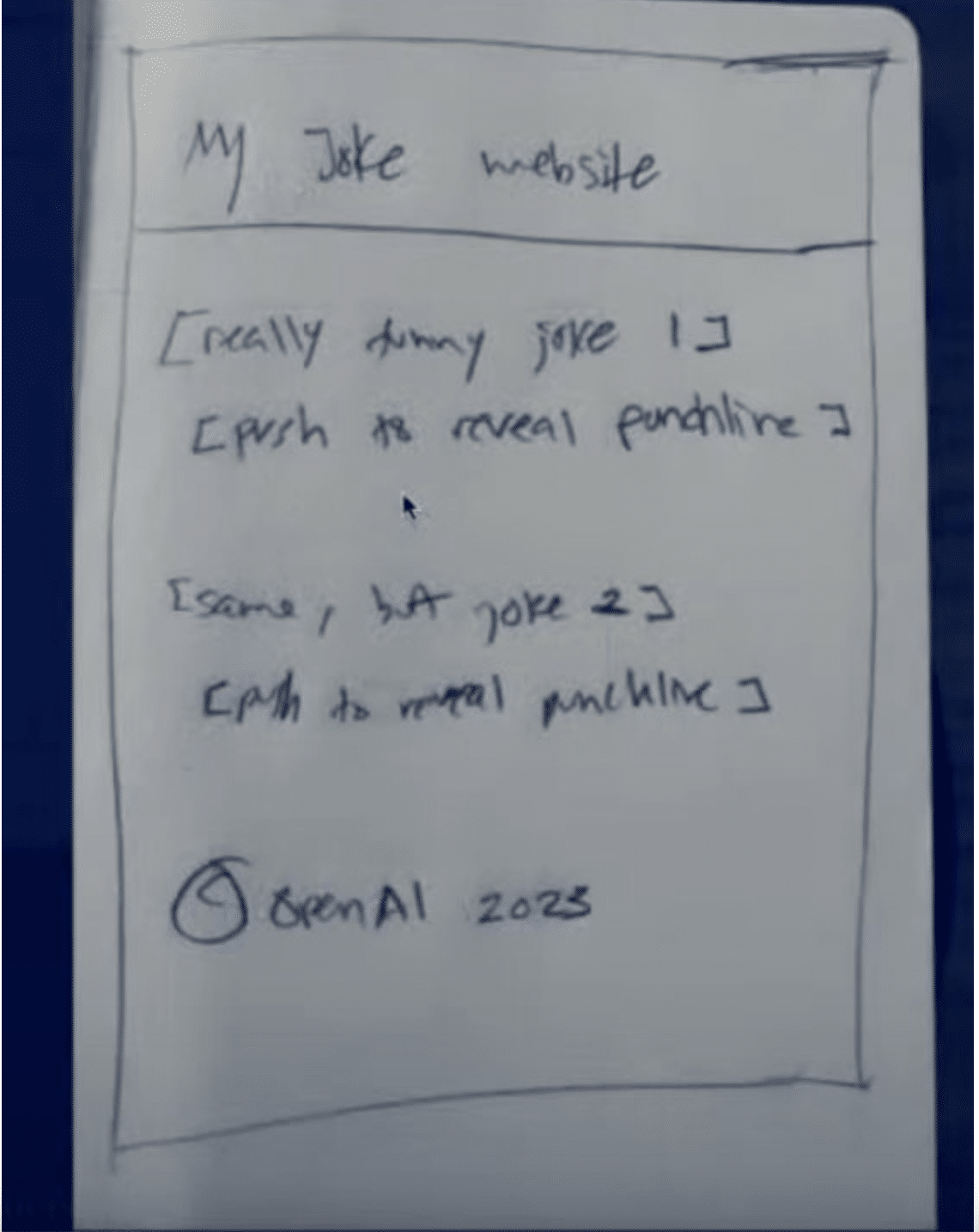
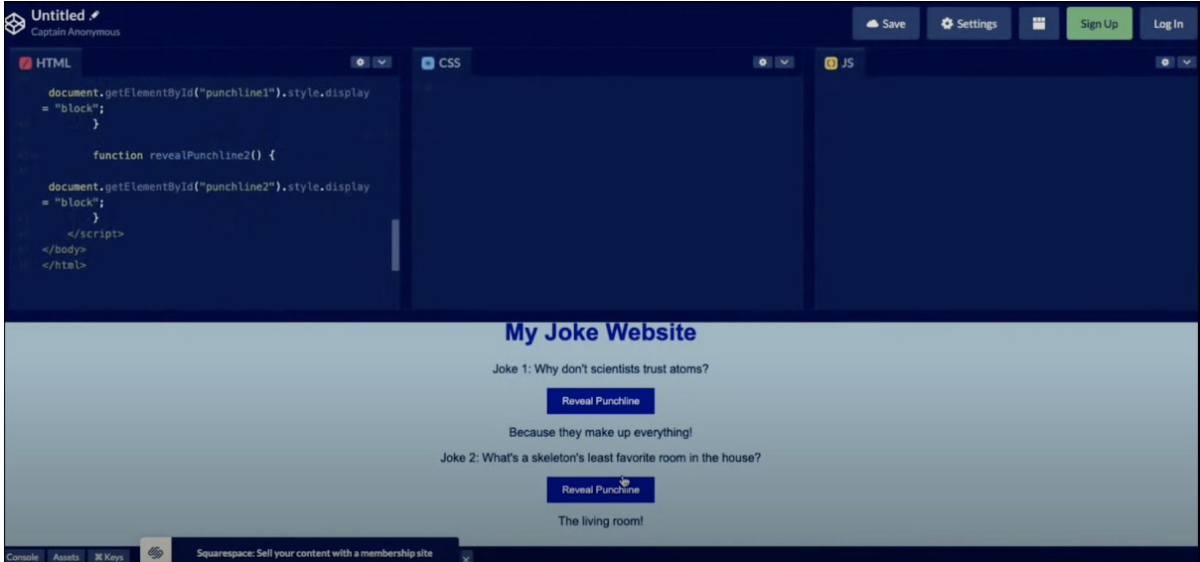
Litigation
Thanks to GPT-4, you no longer need to hire a lawyer to help you create and submit petty lawsuits. Joshua Browder, CEO of DoNotPay, showed how he used a prompt to generate a $1,500 federal lawsuit against a certain Mariott Rweards, Inc. for a spam call.
The chatbot prepared a 1,000-word lawsuit, and according to him, “GPT-3.5 was not good enough, but GPT-4 handles the job extremely well.” Responses from the comment section showed these lawsuits could only be generated for calls within the United States.
Search Engine
After pouring $11 billion into OpenAI, Microsoft might be up for some rewards for its investment. Yusuf Mehdi, the Corporate Vice President & Consumer Chief Marketing Officer at Microsoft, confirmed in a tweet that Bing, Microsoft’s search engine, has been customized to use GPT-4 to answer search queries.
In response to comment questions, he further stated that an early version of GPT-4 has been available on Bing for the past five weeks and will be constantly updated as OpenAI releases new improvements.
Smart Contract Audit
Coinbase Director Conor Grogan gave GPT-4 an Ethereum smart contract and asked it to spot vulnerabilities and areas of exploration in the contract. The smart contract was hacked in 2018, and the hackers made away with over 866 ether. Within seconds, ChatGPT identified these areas and ultimately determined that the contract was illegal.
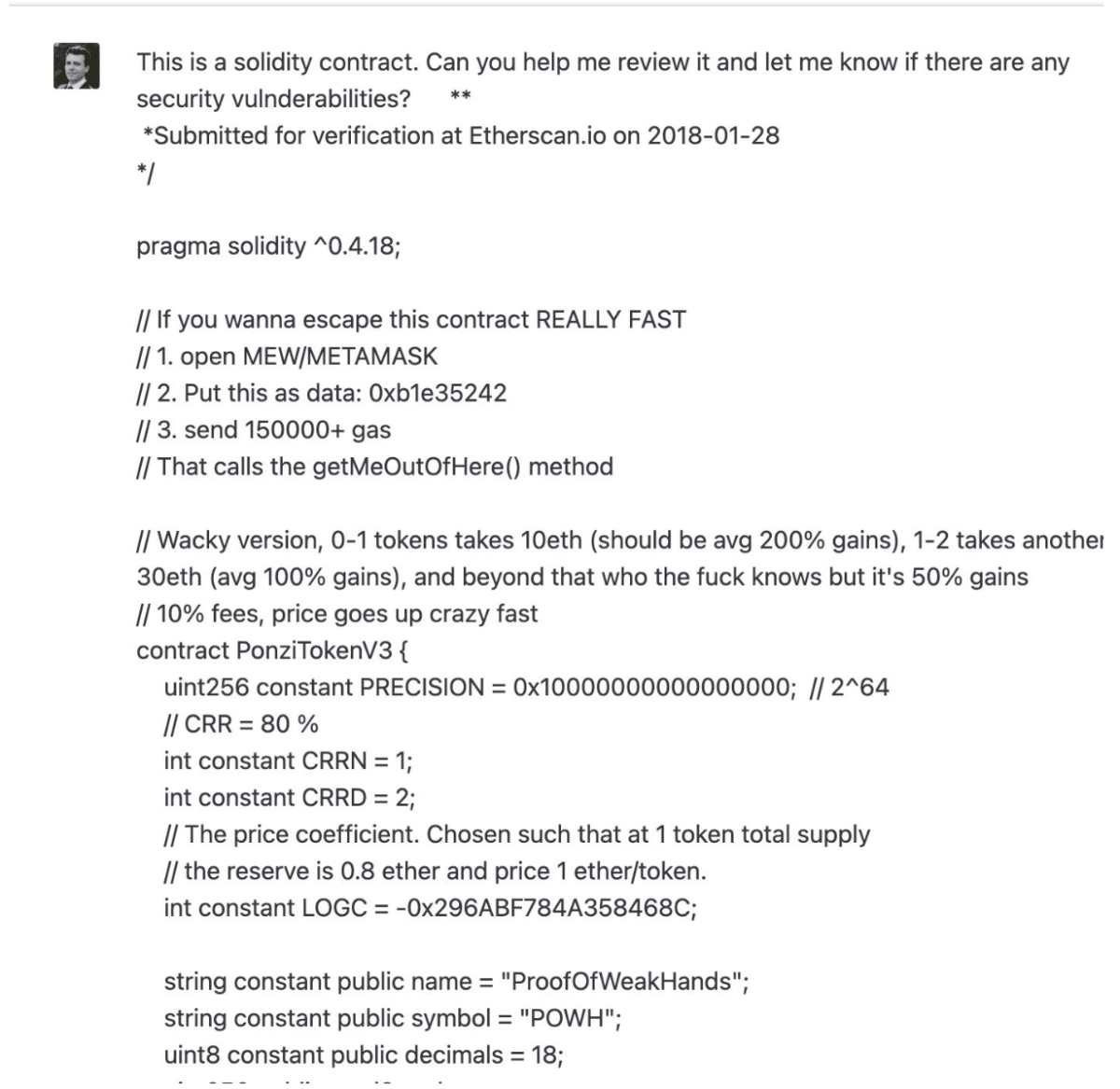
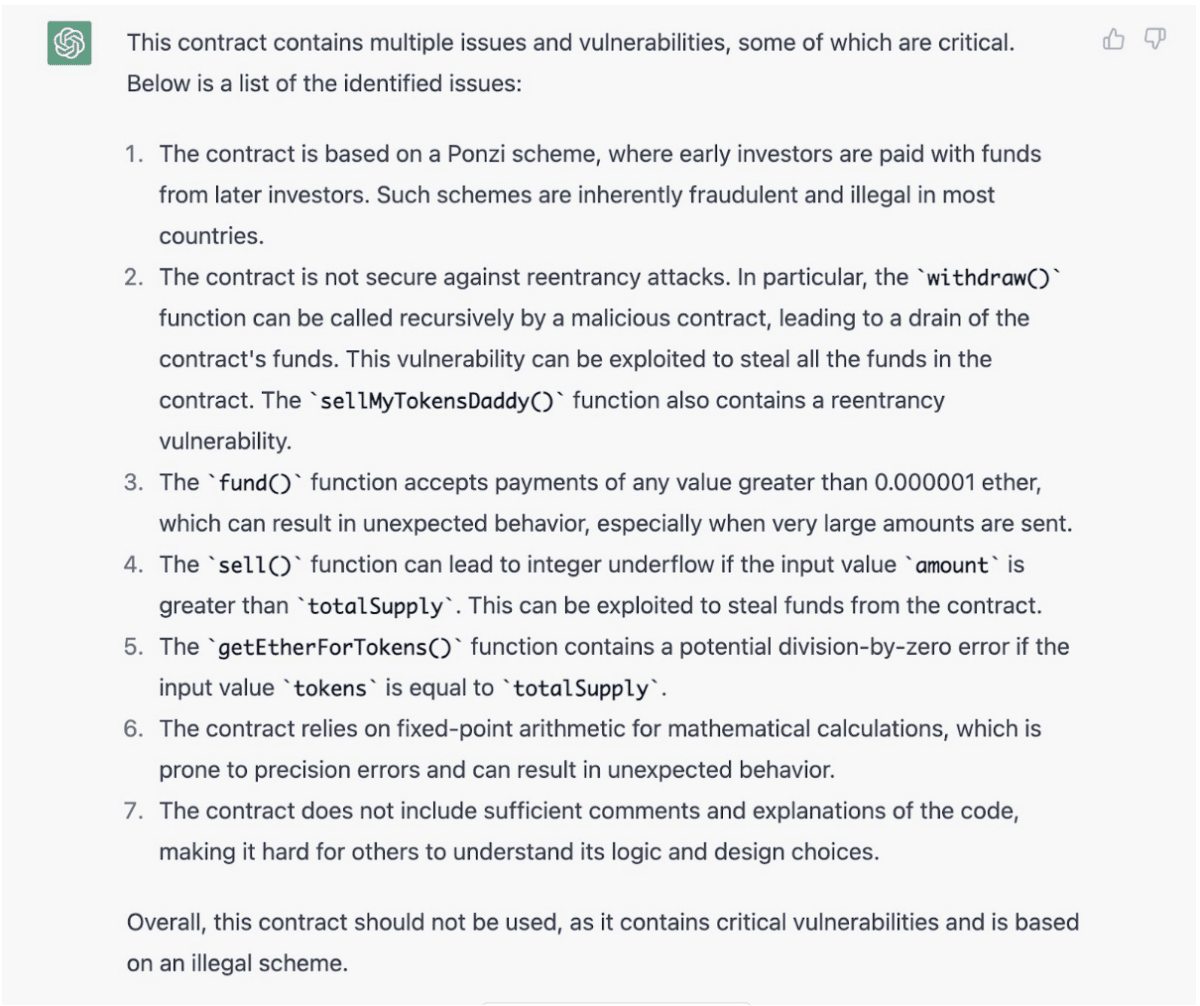
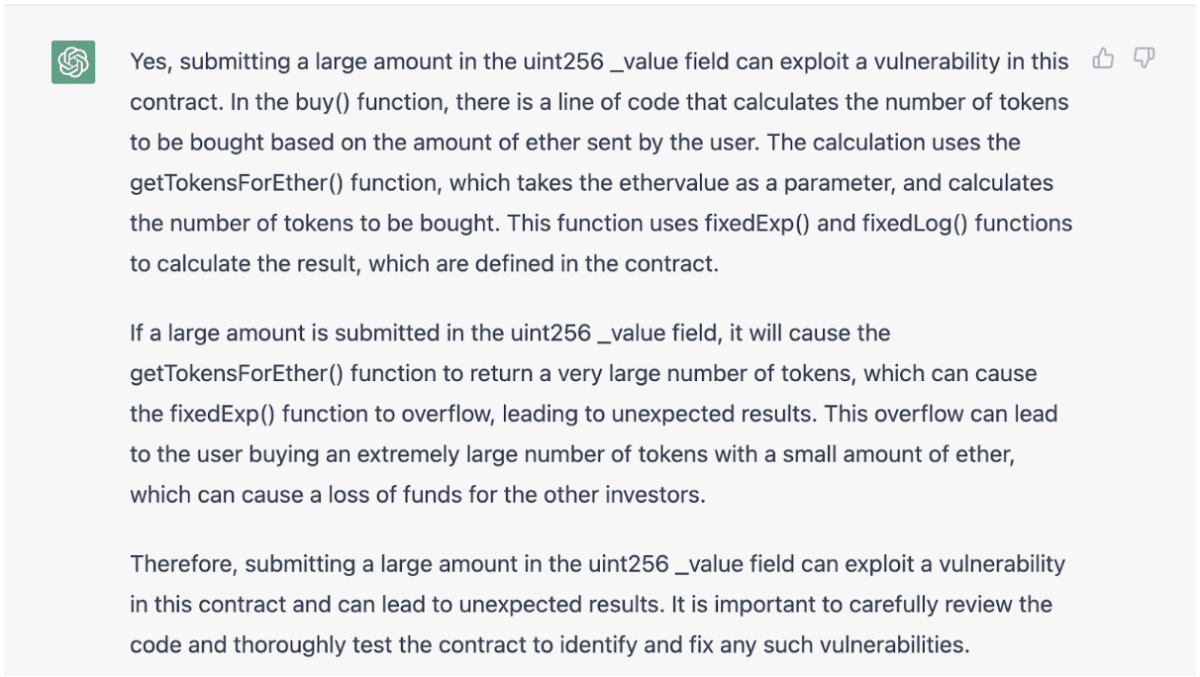
Gaming
With so much design experience, Pietro Schirano, a design lead at Brex, used GPT-4 to design a game of Pong in less than 60 seconds. Pietro claims that when he tried to develop the same game using GPT-3.5, he had to run some debugging and find other errors before the game could work properly. However, he got it in one shot with GPT-4. When queried, Pietro further explained that you would need to request to be a developer, and you can play the game here.
Risk Evaluation
OpenAI invited the Alignment Research Center (ARC) to test the early models of GPT-4 and specifically evaluate its ability to replicate and acquire resources independently. The generative models were subjected to several tests, from conducting a phishing attack to hiding its traces on a server and hiring a human TaskRabbit to perform specific tasks.
The HumanRabbit was asked to solve a CAPTCHA, and GPT-4 convinced the human to complete the task after an initial interjection.
Customer Service
Popular customer software company, Intercom, is the first to show how GPT-4 can be integrated to help businesses create a better connection with their customers. Intercom launched Fin, a new customer service bot powered by GPT-4.
Introducing Fin, Intercoms co-founder Des Traynor highlighted specific customer service bot challenges GPT-4 solves through Fin.
- Hallucination: Fin allows you to know the questions it can answer and the ones it can’t. It doesn’t provide irrelevant answers to complex queries.
- Disambiguation: GPT-4 interacts with clients to deconstruct their queries when it doesn’t understand the customer query.
- Referral: When Fin cannot answer a question after deconstructing it, Fin transfers the customer to a customer agent with a well-structured question so the agent can quickly provide answers.
Fin’s last solution is its ease of setup. According to Des, the chatbot takes only a few weeks to set up. All you have to do is “point Fin at your knowledge base and exhale.”
Education
What’s the use of artificial intelligence innovation if it does not help improve education? Duolingo, a popular language learning platform, has partnered with OpenAI to use GPT-4 to aid language learning. Duolingo users now have a new subscription tier, Duolingo Max, with two extra features:
- Explain My Answer: Explain My Answer is incorporated with lesson responses and clarifies why your answers are correct (or not.)
- Roleplay: Roleplay is a chatbot that lets you practice real-world conversations and fine-tune your language learning
Existing users can instantly upgrade to this new feature through the Duolingo shop. When asked if customers would get a refund for purchasing the Max subscription, Duolingo assured them that even though they would be charged the full subscription fee, Apple would issue a prorated refund for their previous subscription.
The Dulolingo Max plan is only available for Apple users. Android and platform users will get an upgrade subsequently.
Medicine
The potential benefits of GPT-4 won’t be complete if it does not provide medical solutions. According to Dan Shipper, CEO of Every, if you give GPT-4 the name of a drug, it will:
- Analyze the compounds in the drugs.
- Find other compounds with similar properties.
- Modify the new compounds to ensure there’s no existing patent.
- Purchase the compounds from a supplier (and even create a purchase order if necessary.)
Sadly, this ability can also be exploited for malicious purposes, one of the many risks GPT-4 poses to humanity.
Love
In the evergreen words of Sophocles, “One word frees us of all the weight and pain of life: that word is love.”
GPT-4 just revitalized matchmaking, making it much easier for people to find love. Jake Kozloski, CEO and Co-founder of KeeperMatch, showed how GPT-4 would determine if two people are a good match using their profile data and preferences.
In this video, he determined if a man was a good fit for the woman and if the woman was a good fit for the man. He also asked GPT-4 to give him a list of information he needs to ask both parties to confirm if they are a good fit.
Limitations of GPT-4
Each upgrade has limitations as OpenAI struggles to work towards perfection in developing its generative pre-training (GPT) models. Some of these limitations, as highlighted by OpenAI, include the following;
- GPT-4 cannot make reasoning errors and hallucinates facts. However, it performs much better than the previous GPT-3.5 but requires special attention when used in specific contexts.
- The model cannot completely separate facts from a list of incorrect statements.
- GPT-4’s output can have various biases.
- Like its previous models, GPT-4 lacks knowledge of events after September 2021, when most of its data was cut off, and does not learn from experiences.
- GPT-4 does not cross-check its facts to avoid mistakes and can sound confident in its predictions.
GPT-4 Risks
According to OpenAI, GPT-4 poses similar risks as its previous models. It can;
- Generate wrong and harmful advice, codes, and other information.
- Provide harmful outputs, but the tendency has been reduced by 82% compared to GPT-3.5.
- Can generate content violating OpenAI’s usage guidelines.
- Potentially influence harmful behavior in society.
The Evolution of AI Through GPT-4
Undoubtedly, GPT-4 is here to provide more solutions than even its creators could have imagined. Despite its unbelievable potential, this artificial intelligence is only a beacon for the unimaginable heights that artificial intelligence can be used to make life easier.
OpenAI ensured that GPT-4 was better than previous models and reduced the risks compared to these models. As the company, and other AI businesses, work towards achieving near-human-level performance, one thing is sure – there’ll be more upgrades, successes, and failures.

